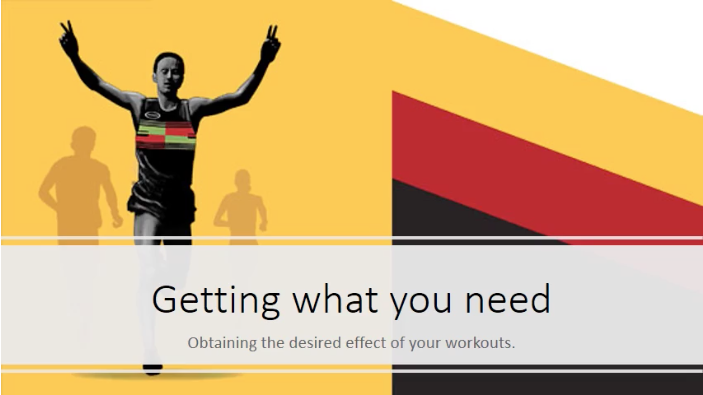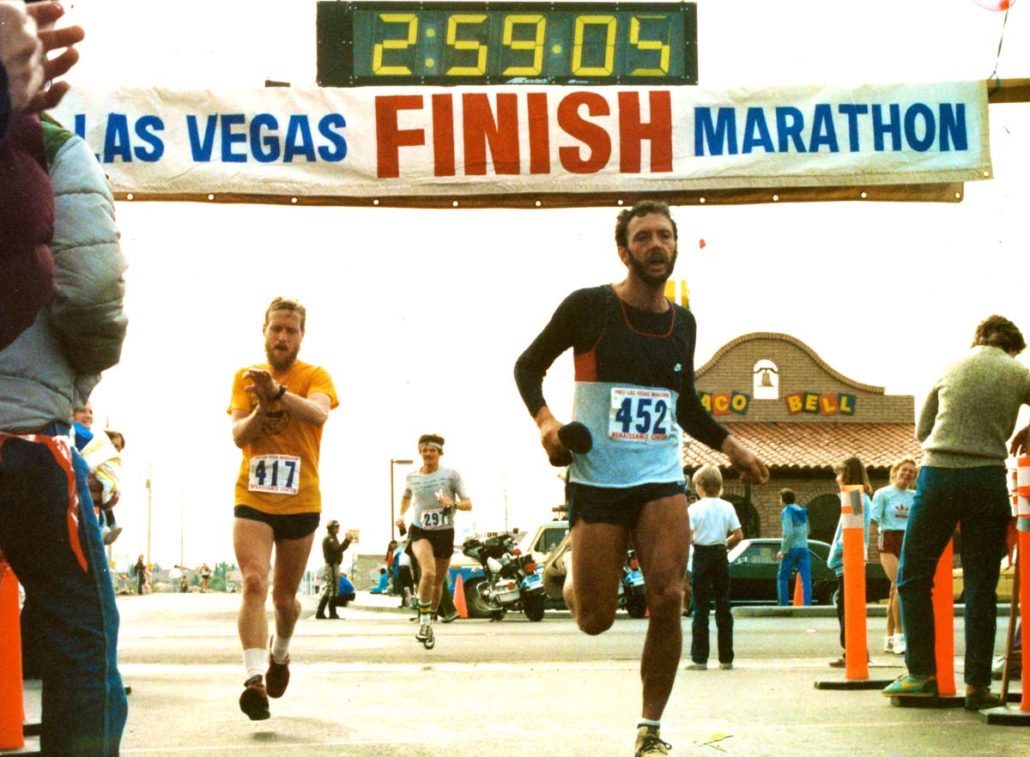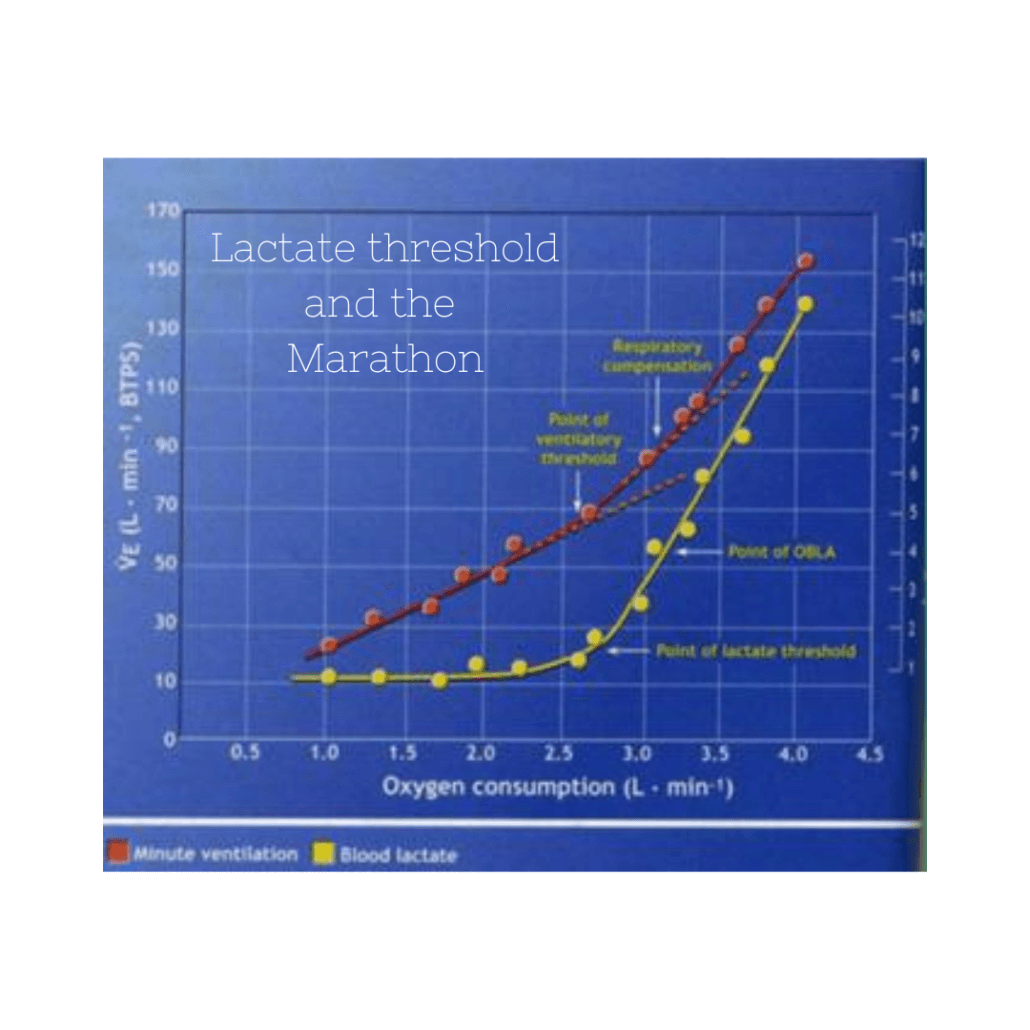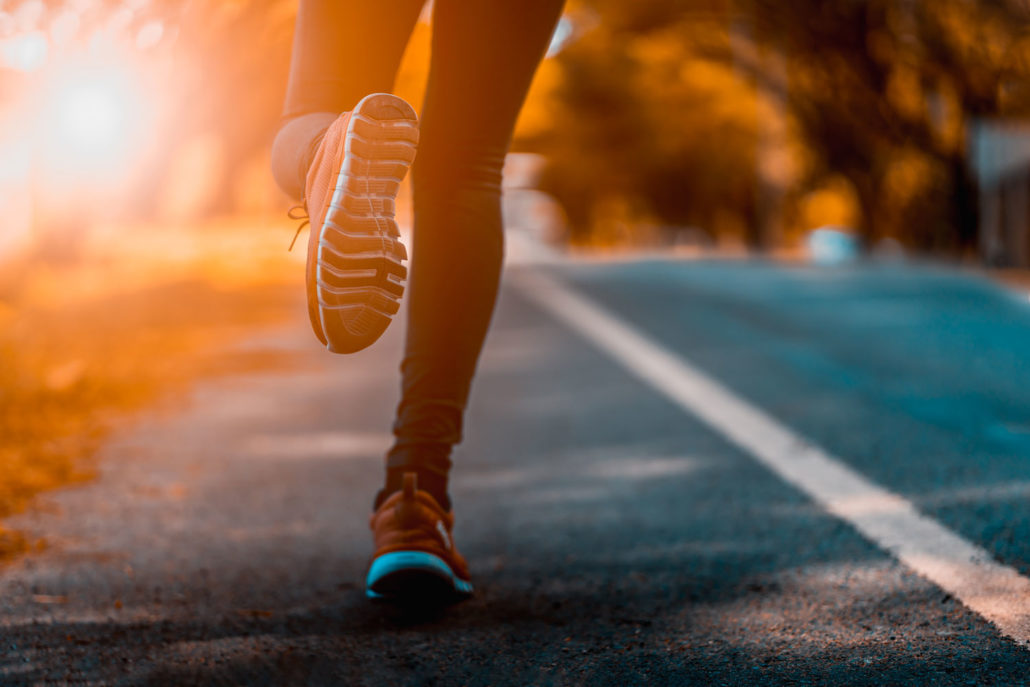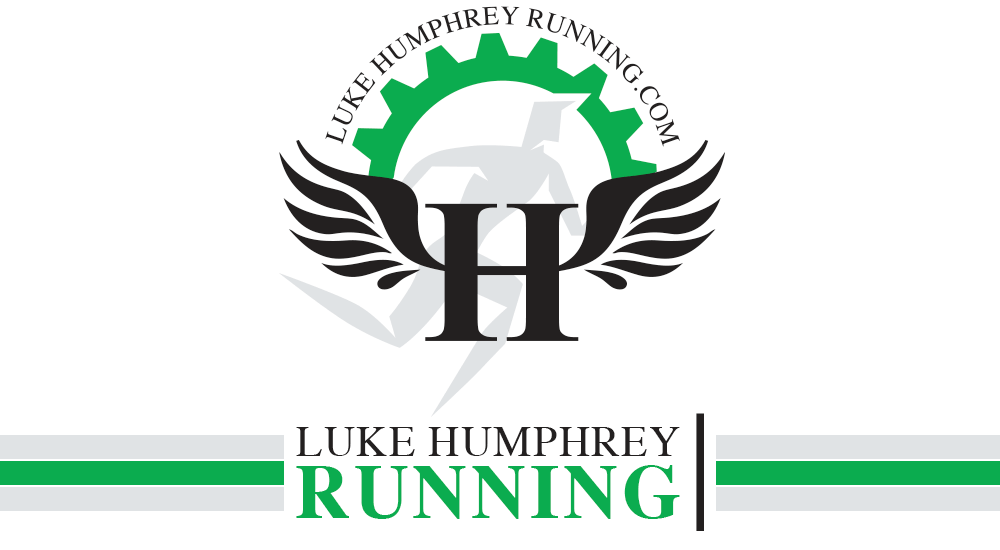What to train for when past our prime? When is our prime?

I received an interesting question from an HMM user. Essentially, the athlete asked about staying motivated as they had “passed their prime” and what kind of goals one should set. Personally, I was intrigued to explore this query for my own selfish reasons. As I write this, I still compete at a high level, but the people beating me are now much younger than me. There’s so much to dig deeper into here, so let’s break this up a little.
First off, I wondered about when people really start falling off their best performances. I’ve been coaching runners of varying abilities since 2006 and it seems (purely from observation) that performance didn’t necessarily decline drastically at a certain age. I came across a study by Zavorsky, et al. (2017) entitled “Declines in marathon performance: Sex differences in elite and recreational athletes.“
What the researchers did was look at finishing data for all age groups and gender from the NYC, Chicago, and Boston marathons between the years 2001 and 2016. Not a bad subject pool!
With that many subjects over such a long time, there is no doubt we could get a good makeup of performance as we age. Here’s some quick statistics:
- Fastest age group was 25 to 34 years old (big surprise, right?), with the average male champion being 28 years old and the average woman champ being 30 years old (almost 31).
- From ages 35 to 74, the average female age group winner dropped 2 minutes 33 seconds from the next youngest age group, while the average male dropped about 2:06.
- The median times only began to slow after the age of 50. After that, the rate of decline was similar between men and women.
This is all great, but what exactly does that mean for us?
To me, it means a couple things. The first is that the faster you are when you are younger, the more you will feel the effects of aging. Or, put another way, if you are a lifelong competitive athlete, the more likely you will drop off from your peak younger performance. Now, I say that based on what the the data says from a pure numbers standpoint. I think there is also a lot of reading between the lines that needs to occur. For one, most elite runners who “retire,” really do that. When most are done, they are just done. They don’t keep training as hard as they did. Heck, I know a lot of former competitors who haven’t raced at all since they left the professional scene. So, while the younger age groups will obviously dominate major road races, it does leave the door open for “middle aged” runners to move up the ranks in their age groups. It would be interesting to see how recreational runners in the 25-34 year age groups compared to the 35+ age groups.
Second..
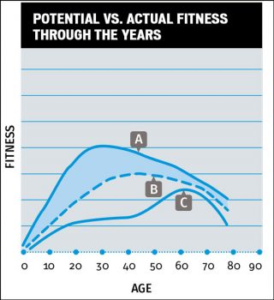
…the median times never really dropped for 35-50 years old. I find this interesting as this is the biggest age range for people who are starting families, careers, are invested in a lot of other areas of life. To me is says that everyone here is probably very limited for time to train and can’t train to what their physiological potential is (we’ll go into this more). Beyond that, times do drop off, but I think this is only partly due to age and more to do with training. In short, if you are beyond that 35 year old age group and can invest into the right training, you can be highly competitive and not see a big drop in time. If you are a newer runner and above 35, then I would be very optimistic that you could improve well into your forties and fifties before reaching a plateau and inevitable decline in performance.
Why would I make a claim like that? Well, take a look at this graph from Jeff Horowitz’ book Ageless Strength: Strong and Fit for a Lifetime.
I get it. Sometimes you want to just run for the fun of it, or do a race with a loved one, or something like running a marathon in every county of every state (is that a thing)! We all have choices to make and maybe taking a break reignites the desire or you just find a new desire. If you do move on, then you wouldn’t be reading this. You’d be reading How to Make the Champions Tour for Dummies. (I would, anyway.)
If you are still looking to keep running and racing as your primetime passion, then I take everything we discussed as positive news that you can maintain high levels of performance well into our 5th and 6th decades of life. So, while we may not be able to win the race outright, we can be highly competitive in our age groups, chase age graded performances, and smaller races (where we can challenge for overall or age group wins), move up in distance, or go to something like trail running.
If you are looking at staying competitive as you can, whether age group wins, age graded performances, or being competitive in smaller races, then I urge you to take a look at how your training is structured. What I find many times with masters runners is that they tend to do three things. One, they put too much emphasis on running more miles as a way to compensate for declining performance. Two, they tend to shy away from speed workouts (strides, VO2 max work, shorter races), Three, they tend to neglect general strength and mobility. A lot of this goes hand in hand. Doing speedwork is not as fun when you are slower than you were a few years ago and just going for a longer easy run sounds more enjoyable. Doing our core and strength routine can’t happen because we put all our time into running longer. You can see how it’s easy to start slipping out of the routine’s we used to do.
One of the biggest culprits of declining fitness is loss of muscle mass.
If we don’t use it, we definitely lose it.
I saw this while working in cardiology as well as working with master’s runners. If the goal is to perform at a high level, then the more muscle mass we keep (and neurological connections), the slower the decline in performance. So, while I love moderate to high mileage, I do think that you keep everything in check. More mileage for the sake of mileage isn’t going to produce the results you want. However, moderate mileage with maintenance of speed through hills, speed, strides, core, and general strength will supplement your high aerobic fitness. It should even make you more resilient to injury, which will allow you to train at a higher level more consistently.
Now, if you’ve checked out from doing track work (I don’t necessarily blame you), then what other options do you have? There are a number of things you can venture off too- like tests of pure endurance. One example I see a lot is the Dopey Challenge at Disney in January. This consists of a 5k, 10k, half marathon, and full marathon on consecutive days. Others will drop some crazy coin and do something like seven marathons in seven days in all seven continents. There’s so much you can do to truly test your endurance, but I am not familiar with any of it, so won’t pretend to know. What a lot of people will do though is change their mentality from “how fast” to “how far” and with that, I think you are seeing the rise of popularity in the ultra running world. Whether it’s 50k or 50 miles, even up to 100 miles, people are running farther and farther. As the distance gets farther and farther, there is much less reliance on age and gender, and much more on the abilty to persevere. You see runners run farther at faster distances as the reliance on VO2max and velocity at VO2max become less important.
Ultimately, there’s a million ways to handle decreasing speed due to aging.
However, it’s important to realize that there’s a lot you can do keep that decrease to a slow decline and not a rapid descent. If you want to go off to new adventures, that’s not a bad idea, either. Whatever you do, make sure it’s something you enjoy doing. Competing past your prime may not be as early in life as you thought. It certainly doesn’t have to be the end of the line!
[et_bloom_inline optin_id=optin_4]
[yith_wc_productslider id=74766]
